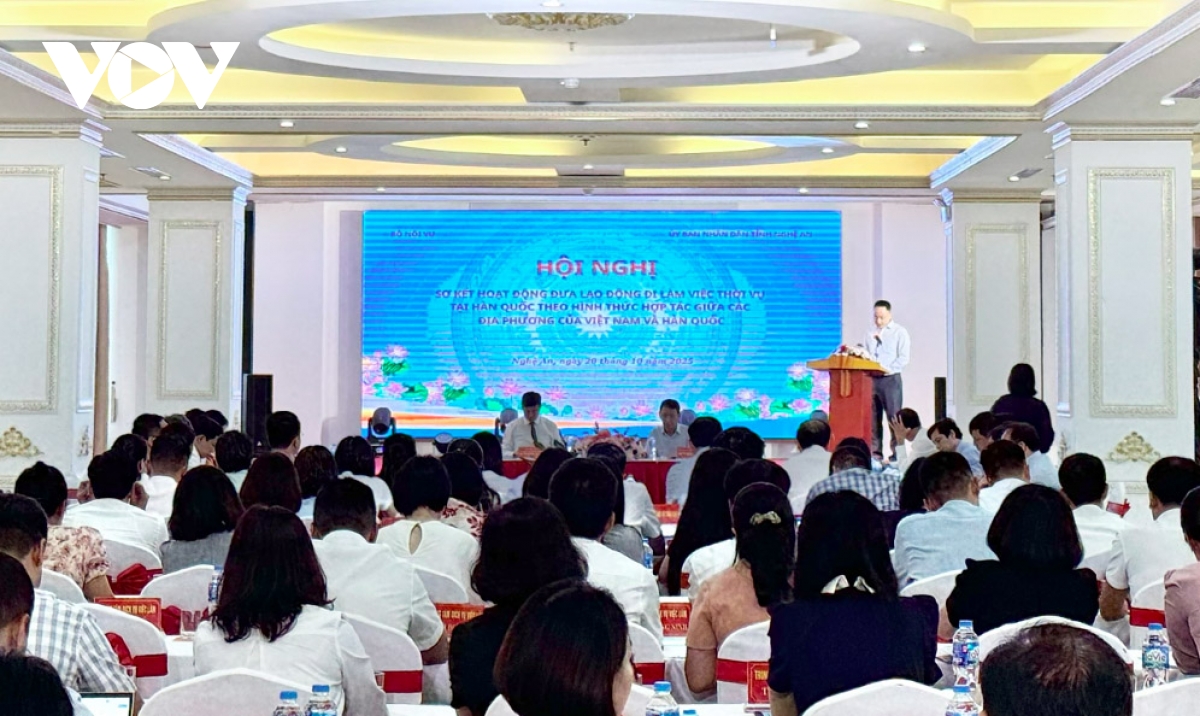Over 10,000 Vietnamese workers sent to RoK for seasonal jobs
VOV.VN - More than 10,000 Vietnamese workers have been sent to the Republic of Korea for seasonal employment under a local cooperation programme between Vietnamese and Korean authorities, heard a review conference in Nghe An province on October 20.

The event was jointly organised by the Ministry of Home Affairs and the People’s Committee of Nghe An province to review the implementation of a pilot programme that enables local governments in Vietnam and the RoK to collaborate in sending seasonal agricultural workers abroad.
The programme was launched following the issuance of Decree No. 13/2018 by the Vietnamese Government on February 8, 2018, which allowed a two-year pilot of sending Vietnamese seasonal workers to the RoK through local-level agreements. These workers are primarily employed in agriculture, such as planting and harvesting crops, with a smaller portion working in fisheries.
So far 16 Vietnamese provinces and cities have signed cooperation agreements and sent workers under the programme. Data from participating provinces shows a high demand among local workers, often exceeding the number of available positions. For instance, Ca Mau received over 500 applications but only selected 285 individuals.
Ninh Binh province has sent the highest number of workers with 3,161 deployments since 2022, followed by Da Nang with 2,373 and Dong Thap with 1,467 since 2018.
Depending on recruitment needs provided by Korean partner localities, Vietnamese agencies have been responsible for communicating eligibility criteria, benefits, and job requirements to local communities. They also handle application collection and coordinate selection with Korean counterparts.
According to Vu Truong Giang, Acting Director General of the Department of Overseas Labour Management under the Ministry of Home Affairs, the average monthly income for workers in the RoK ranges between KRW1.8 to 2.5 million (equivalent to VND30 - 47 million), after deducting accommodation and meal expenses. This does not include overtime pay.
However, challenges remain. Workers often face climate-related difficulties, especially during Korea’s cold winters. In some cases, due to the seasonal nature of the jobs, actual working time has not always met expectations outlined in the agreements.
To be eligible, applicants must be between 25 and 50 years old, have at least one year of experience in agriculture or fisheries, be in good health, and free of infectious diseases such as tuberculosis, hepatitis B, or HIV. They must also have no criminal record and no family members residing illegally in the RoK.
Selected workers are required to complete visa applications and undergo health checks and background screening. They also participate in 4–5 weeks of training, which includes basic Korean language, legal and cultural orientation, labour discipline, workplace safety, and emergency contact information.
This pre-departure training, held locally, is designed to equip workers with essential communication and job-readiness skills.





